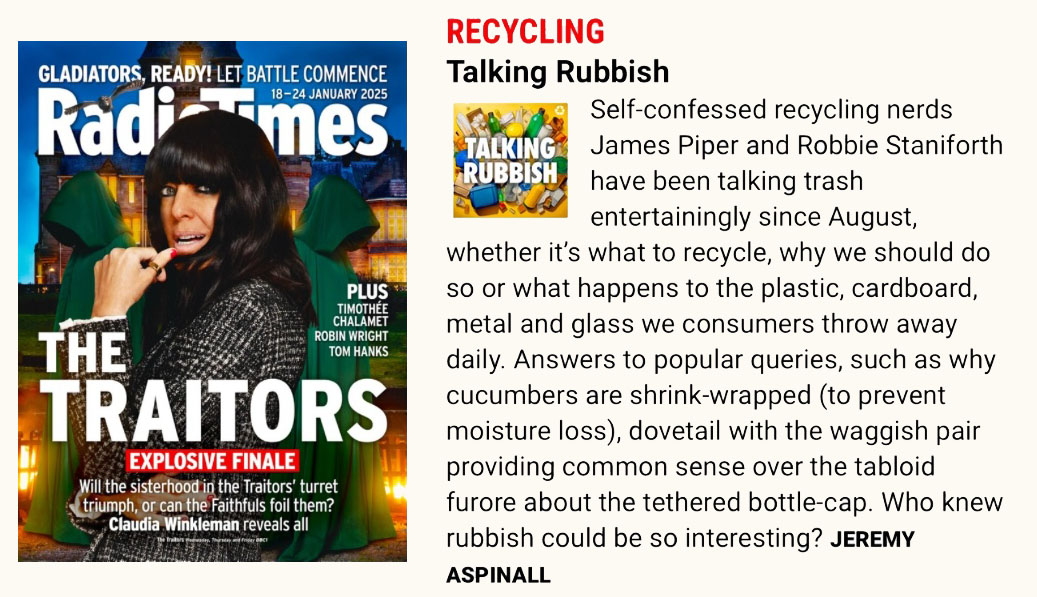Aug. 8, 2024
2. Why coffee pods aren't that bad

Discover why coffee pods may not be that bad for the environment after all and how they can get recycled. Plus, how are cardboard and paper sorted, can aerosol cans be recycled and do you need to take tape off wrapping paper?
In the second episode of Talking Rubbish, hosts James Piper and Robbie Staniforth tackle the contentious issue of coffee pods, often vilified for their environmental impact. They dig into the misconceptions surrounding coffee pods, explaining why these small, single-serve containers might not be as harmful as their reputation suggests.
Coffee Pods: The Environmental Debate
The discussion begins by acknowledging the widespread criticism of coffee pods, particularly concerns about their contribution to plastic waste. Coffee pods have become symbolic of single-use plastics, drawing ire from environmentalists and conscious consumers alike. However, James and Robbie take a closer look at the materials used in coffee pods today and the recycling options available, providing a more nuanced view of their environmental impact.
The Evolution of Coffee Pod Materials
One of the key points raised is that many coffee pods are no longer made from the non-recyclable materials that originally sparked the backlash. Instead, manufacturers have increasingly shifted to using recyclable aluminum or even biodegradable options. James and Robbie explain that when these pods are properly recycled, their environmental footprint can be minimized. In fact, they argue that when considering the entire lifecycle of coffee production, including factors like water and energy usage, coffee pods can be more sustainable than other brewing methods.
The Importance of Proper Disposal
A recurring theme in the episode is the importance of proper disposal. The hosts emphasize that the real issue isn't the coffee pods themselves, but how they are disposed of by consumers. Many people simply throw used pods in the general waste, missing out on the opportunity to recycle them. James and Robbie stress the need for better consumer education and more accessible recycling programs to ensure that these pods are disposed of in an environmentally friendly way.
Comparing Coffee Pods to Other Brewing Methods
The hosts also compare the environmental impact of coffee pods to other brewing methods. They point out that traditional drip coffee makers and espresso machines often have a larger carbon footprint due to the energy required to heat water and the amount of coffee that goes to waste. In contrast, coffee pods offer a more controlled serving size, which can reduce both waste and energy consumption. This comparison challenges the narrative that all convenience products are inherently bad for the environment.
The Role of Consumer Responsibility
James and Robbie conclude the episode by discussing the broader implications of convenience products like coffee pods on sustainability. While it's easy to demonize single-use items, they argue that with proper infrastructure and responsible consumer behavior, these products can be part of a sustainable lifestyle. They encourage listeners to be mindful of their choices, take advantage of available recycling programs, and push for better systems to manage waste.
Conclusion: Rethinking the Coffee Pod Controversy
This episode of Talking Rubbish provides a refreshing take on the coffee pod controversy, urging listeners to look beyond the headlines and consider the full lifecycle of these products. It’s a call to action for both consumers and companies to take responsibility for their environmental impact and to make informed decisions that contribute to sustainability. By examining the facts and dispelling common myths, James and Robbie offer a more balanced perspective on the role of coffee pods in a sustainable future.

















